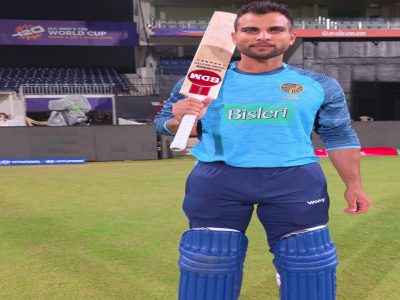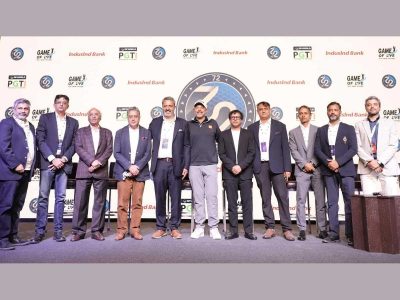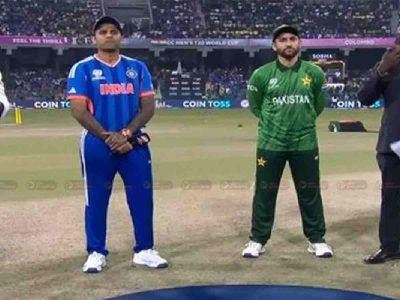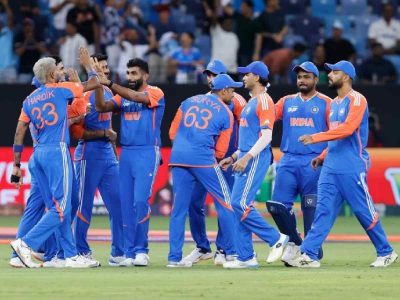Sudeva FC becomes the first club from Delhi to play the I-League. Patriot takes a look into their history and philosophy and what it means for Delhi to have their own football club
I-League may not be the top-tier domestic football competition anymore in India but Delhi-based Sudeva FC’s entry into the league made a lot of headlines, mainly because the decision means the national capital would have representation in the championship for the first time.
All India Football Federation (AIFF) on 12 August approved Sudeva’s entry into I-League for the upcoming 2020-21 season. Sudeva will be immune from relegation for the upcoming season as they take the I-League plunge through a corporate entry.
AIFF’s decision also means Delhi would once again have a club in either Indian Super League (ISL) or I-League. The city was without a team ever since ISL franchise Delhi Dynamos moved to Odisha.
Sudeva was founded in 2014 by Anuj Gupta and Vijay Hakari, in 2016 when they bought a senior division club called Moonlight FC, later renamed as Sudeva Moonlight FC. They have fielded teams in DSA (Delhi Soccer Association) Senior Division and in various age-group tournaments from Under-13 to Under-18. Sudeva’s major focus area has been grassroots development; the club runs a residential academy in Delhi-NCR region and also has majority stake in Spanish football club Olimpic de Xativa, which plays in the Tercera Division.
The upcoming I-League season, which will be held only in Kolkata due to the Coronavirus pandemic, will not be Sudeva’s first appearance in a national league, though. They participated in the I-League second division in 2016-17 and failed to move up. The club feels they are now better placed to pursue top-level football ambitions.
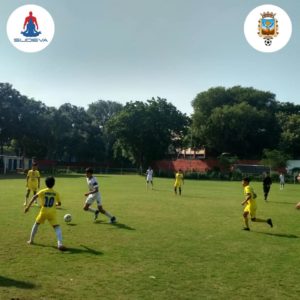
“2015 is when I made a plan for 10 years and my initial plan to enter I-League was in 2019, so we were ready. We also have the experience of managing a senior club team from Spain’s third division for the last two years. We have been handling 100 kids every year in our academy and they are now graduating, so for me to give them a proper platform is very important, otherwise we would have lost this talent”, says Anuj Gupta, co-owner of Sudeva FC.
The club has already begun the process of recruitment for the upcoming season. Sudeva’s academy players would form a big part of the squad, including players from Delhi, while experienced players would be brought in from outside. The club plans to hold a trial in September to select the remaining players before organising a two-month pre-season. There are no plans to sign any overseas players for the upcoming season and the club confirms that it would have an all-Indian contingent.
The imminent challenge for Sudeva would be to make majority of Delhiites identify with the club, something Dynamos failed to do in their five years in the National Capital. Due to the ongoing pandemic, residents won’t have the opportunity to watch the team from the stands but the club has its plans in place to enhance their social media presence among the people of Delhi.
“We plan to start a campaign in Delhi so people know that we are a club for Delhiites so that we can increase the fan base on social media” says Gupta.
Producing players for the national team is what Sudeva describes as its “main goal” and the I-League participation could just be a sojourn as the club prepares for top level football experience.
“The plan is to be in ISL in three or four years. In the long-term it seems like the national team would only be selected from the top division. Our main goal is how many players can we give to the national team and for that I need to be in the top division,” says Gupta.
In a very short period, Sudeva have managed to catch attention for their grassroots development work but good intentions and hard work can only take you so far in Indian football, an ecosystem which could be more unforgiving than any. In recent years, numerous popular and old clubs have ceased operations due to financial pressure. It’s arguably the biggest challenge for Sudeva.
The club is determined to run its operations in a manner where it remains self-sustainable. The owners plan to expand their residential academy operations to fund the “first team”.
The club has a 70-30 model. 70% of the kids in the residential model pay for it and 30% are under full scholarship. “So based on this model I am able to save money. It has taken a hit due to the pandemic but in normal circumstances that saving could have been used for the first team. The savings, sponsorship money and AIFF subsidy would have been enough for me to have a good budget,” says Gupta.
“I don’t want a situation where we shut down operations in a few years which many clubs are doing. We have a responsibility towards all the players, who are coming to Sudeva with a dream and feel Sudeva can take their dreams forward. We need more clubs to come up and stay afloat.”
Sudeva had an unexceptional start with football academies which later developed into a successful residential academy and now an I-League club. They would be putting Delhi back on India’s football map and have meticulous plans to spread their wings further. The toughest period, however, is about to begin for Sudeva: the jump in standard of competition is going to be exponential, from Delhi Senior Division League to I-League. Running a professional club sustainably is a different ballgame than running an academy. If they successfully tread through it, the rewards should be rich, for Delhi, the club and Indian football.
(Cover: Sudeva FC set to begin their I league journey in 2020 // Photo: Facebook.com)


